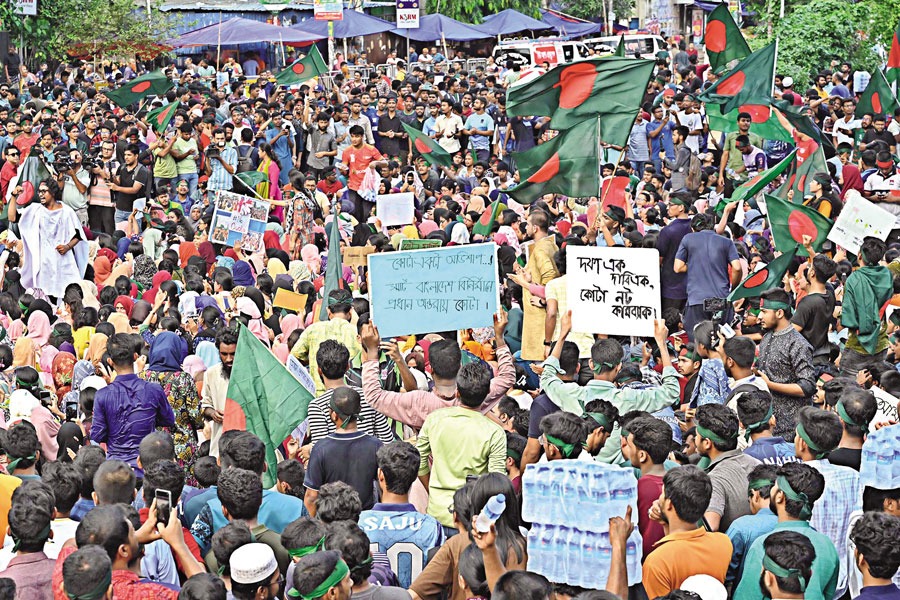
Published :
Updated :

After 5th August 2024, many things have changed. Bangladesh's political and related social situations showed significant differences.
What began as abstract speculation has solidified into a nuanced debate, driven by economic anxieties, a thirst for institutional reform, and a complex relationship with the very idea of development. It's a core shift. The generation that has witnessed development projects like the Padma Bridge, the Metro Rail, and a rising GDP. Yet, this same generation has faced the sharp end of record inflation, a competitive job market, and questions about the sustainability of this growth model, and will also face the effects long term.
But unlike older generations defined by rigid political loyalties, today's youth are more pragmatic and transactional in their political outlook.
They are less bound by the historical legacies of popular political parties and more focused on performance and accountability.
In the cafes around Dhaka, on the fast-scrolling timelines of Facebook, and in the hushed conversations among people, the dominant political question of the past year has not been about the present, but the future.
One year is a minimal period to assume that we are going correctly. Still, in the past 12 months, we have had the opportunity to observe and experience many things to make assumptions.
We had interviews with some young persons to know- "How they see Post-revolutionary Bangladesh in the last 1 year". Key themes dominating youth perspectives are Economy, Democracy, Political stability and Corruption.
Yeasin Muhammad Proyash, a student of BRAC University, shared his experience- "I can at least comment positively/negatively about the Government, and also for commenting, there is no fear of going to jail/abduction, that's also a big thing for me. Also, the trade adviser is doing great deals, which is also positive for me. The economy is becoming stable, which is a positive sign."
Jannatul Ferdoues Akhi is a student of Dhaka International University; her brother was martyred in the uprising. Though the goals aren't achieved, she hopes for the best. She said, "This new phase of our country came at the cost of our blood. My brother died in the July massacre, so for me this is more core and valuable. I see some positive, but also there are so many people using the power in a bad way. Young leaders are rising, which is also a hope if they work to their full potential. I hope the country leads in a good way."
Yasin Arafat Asif, a second-year student, said, "I don't see much difference, still the country is unstable, maybe we are the ones who need to change to better the system."
"Since 5th August, the political situation has not been hopeful. But this year's budget allotment was a proper thing. Our generation talks more about strengthening the Election Commission, ensuring an independent judiciary, and fostering a political culture where dissent isn't seen as anti-state. As the Election time is already declared, situations will be more sorted and easier in the coming days," he added.
These statements reflect all the perspectives and thoughts of the young generation about the country—recap of a year that was unimaginable.
tahmira48@gmail.com


 For all latest news, follow The Financial Express Google News channel.
For all latest news, follow The Financial Express Google News channel.